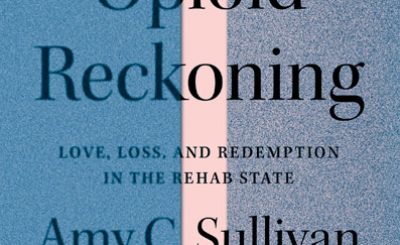Amy Sullivan ‘86 recently published a book comprised of the stories of people whose lives have been impacted by the opioid epidemic in the U.S. Opioid Reckoning: Love, Loss, and Redemption in the Rehab State seeks to put human faces – and human stories – at the heart of an epidemic that has claimed more than half a million lives in the U.S. since the 1990s.
A history professor at Macalester College, Amy began collecting oral histories of addiction when her family was touched by opioid use disorder. “My life as a parent and a scholar collided and I began asking questions about the availability of opioids and addiction treatment,” she said. The collection of stories is interwoven with data, facts, and research to provide a more complete understanding of addiction, treatment, families coping with addiction, and the criminalization of substance use disorders. “People were so generous with their stories which gave me a chance to create more empathy,” Amy said. “My goal in writing this book was to humanize something that has become statistics oriented and that is mostly inaccessible to many in the U.S.”
Historians look at a series of events and ask the question “what changed?” Amy interviewed over 60 people and selected 25 stories to help explore how opioid addiction and treatment have changed and to begin looking ahead at more effective treatments and attitudes toward addiction.
Opioid Reckoning, Amy explained, is a book that is useful for anyone who wants to learn more about the opioid crisis and for people who want to understand how they can help change it. The desire to make change lies at the heart of Amy’s reflections on her two years in Montezuma.
“My UWC-USA education was transformative and is something I think about so often,” Amy said. “It shaped how I look at the world and how I think proactively about peace and how we can understand each other. That basis, in a global context, set the stage for me to be a writer and historian who approaches people and problems with an open mind and open heart.”
Opioid Reckoning, published by the University of Minnesota Press, is available at booksellers.

